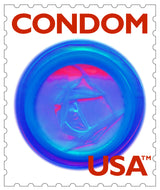How Low Testosterone Affects Health, Mood, and Sex
"More men are getting older, and men are more open about talking about erectile dysfunction,
On the one hand, increased diagnosis of low testosterone is driven by an aging population, less stigma, and more precise tests. But there's another big reason why men come to Mezitis' office for a testosterone test.
"Men are bombarded by media, by advertising campaigns -- 'Don't feel well? Ask your doctor about low testosterone,'" he says.
They come in saying they feel excessively fatigued, weaker, depressed, and that they have lost their sex drive -- all common symptoms of a drop in testosterone.
"As an endocrinologist, I'm thinking hormones," says Mezitis, who estimates that about a quarter to a third of the men he tests for low testosterone have levels below normal. "Sometimes it is testosterone, sometimes it is the thyroid, and sometimes it's something unrelated to hormones."
What Is Testosterone and Why Does It Decline?
Testosterone is a hormone. It's what puts hair on a man's chest. It's the force behind his sex drive.
During puberty, testosterone helps build a man's muscles, deepens his voice, and boosts the size of his penis and testes. In adulthood, it keeps a man's muscles and bones strong and maintains his interest in sex. In short, it's what makes a man a man (at least physically).
After age 30, most men begin to experience a gradual decline in testosterone. A decrease in sex drive sometimes accompanies the drop in testosterone, leading many men to mistakenly believe that their loss of interest in sex is simply due to getting older.
"Some say it's just a part of aging, but that's a misconception," says Jason Hedges, MD, PhD, a urologist at Oregon Health and Science University in Portland. A gradual decline in testosterone can't explain a near-total lack of interest in sex, for example. And for Hedges' patients who are in their 20s, 30s, and early 40s and having erectile problems, other health problems may be a bigger issue than aging.
"A lot of the symptoms are mirrored by other medical problems," Hedges says. "And for a long time, we were not attributing them to low testosterone, but to diabetes, depression, high blood pressure, and coronary artery disease. But awareness and appreciation of low testosterone has risen. We recognize now that low testosterone may be at the root of problems."
Doctors will want to rule out any such possible explanations for symptoms before blaming them on low testosterone. They will also want to order a specific blood test to determine a man's testosterone level.
WebMD Feature






1 comment
Testosterone boosters do not in and of thvseelmes cause excessive hair loss. Unless you have a genetic disposition for baldness which means unless one or both of your granddads was bald you are not going to lose any more hair than is normal for you to do so.
Leave a comment